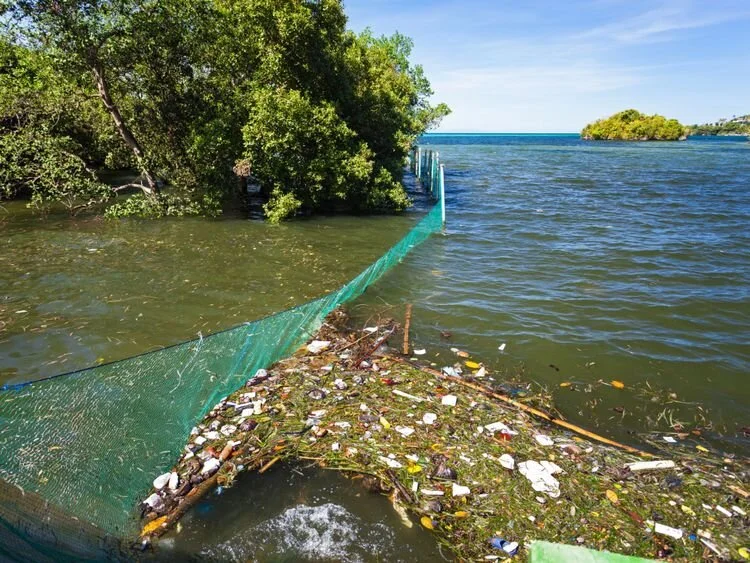The world’s first investment fund—Circulate Capital Ocean Fund —dedicated to addressing Asia’s plastic crisis has been launched. Non-profit Circulate Initiative helps facilitate incubation of new ventures too. NGOs, entrepreneurs and businesses are encouraged to tap into this initiative. Mallika Naguran reports.
SINGAPORE, December 18, 2019. The momentum to prevent waste from entering the oceans and boosting means to recycle waste materials has just picked up with a new flush of funds.
The Circulate Capital Ocean Fund (CCOF) amounting to US$106 million (SGD$144 million) is targeted at preventing plastic from entering the Asian oceans. The fund was launched on 4 December 2019 by Circulate Capital, a Singapore-based and MAS licensed venture capital fund management company.
Circulate Capital, created in collaboration with Closed Loop Partners and Ocean Conservancy, aims to incubate and finance companies and infrastructure that prevent ocean plastic.
The Circulate Capital Ocean Fund (CCOF) worth US$106 million (SGD$144 million) is targeted at preventing plastic from entering the Asian oceans.
The CCOF is the world’s first investment fund dedicated to addressing Asia’s plastic crisis. Its founding investors and partners are PepsiCo, Procter & Gamble, Dow, Danone, Unilever, The Coca-Cola Company, and Chevron Phillips Chemical Company LLC.
The fund will provide both debt and equity financing to waste management, recycling, and circular economy start-ups and SMEs in South and Southeast Asia focused on preventing plastic pollution. This addresses the financing gap between available private capital and resources needed by Asia’s waste sector.
More than 200 investment potential opportunities across a range of industries in the region have been identified, with their first investments targeted in the coming weeks.
Rob Kaplan: With the right kind of investment and in the right place, oceans would be freer of plastic leakage.
With 60% of ocean plastic originating from the region, Asia is the biggest source of plastic leakage into global oceans. A recent Ocean Conservancy Report identified a net financing gap between USD$28 and USD$40 per ton for plastic waste collection in the five top ocean polluting countries in the world – China, Indonesia, Philippines, Thailand and Vietnam.
“The good news is that we are able to reduce nearly 50% of the world’s plastic leakage by investing in the waste and recycling sector in Asia, and even more if we invest in innovative materials and technologies. This is why we are here in Singapore – a strategic hub of Southeast Asia - to prove that investing in this sector is scalable for the region and can generate competitive returns while moving closer to solving the ocean plastic crisis,” said Rob Kaplan, CEO Circulate Capital.
How Circulate Capital Ocean Fund works
Circulate Capital’s investment model seeks to mobilize institutional investors by blending concessionary funds with investment capital. Its objective is to mitigate risk and demonstrate that investments in turning waste into value can ultimately provide attractive financial returns.
Circulate Capital: Nearly 50% of the world’s plastic leakage can be prevented by investing in the waste and recycling sector in Asia.
"For the beverage sector, the more recycled content used in any type of packaging such as 100% recyclable plastics, the lower the carbon footprint. That’s why at Coca-Cola we have invested in Circulate Capital and have committed to collect and recycle the equivalent of every bottle or can we produce by 2030. Beverage packaging does not need to become waste. By investing in the waste collection and recycling sector in this critical region, it can become a valuable material used again and again - a step closer towards a circular economy,” said Matt Echols, Vice President, Communications, Public Affairs and Sustainability Coca-Cola Asia Pacific.
“Circulate Capital plays a critical role in solving the issue of plastic waste in our environment,” said Bambang Candra, APAC Vice President Dow Packaging & Specialty Plastics. “Supporting companies and infrastructure that are addressing plastic waste will catalyze the development of systems designed to advance a circular economy for plastics.”
The financing serves to supplement a required set of solutions such as policy, corporate commitments, incentives and changes in consumer behaviour. To address these conditions, Circulate Capital has partnered with nonprofit organizations, including Ocean Conservancy, Partnerships in Environmental Management for the Seas of East Asia (PEMSEA), and The Circulate Initiative.
The Circulate Initiative is a nonprofit organization launched in October 2019 dedicated to ending ocean plastic pollution and building thriving, inclusive economies.
The Circulate Initiative and partners will foster investable conditions for a proper waste ecosystem with the help of the Circulate Capital Ocean Fund.



